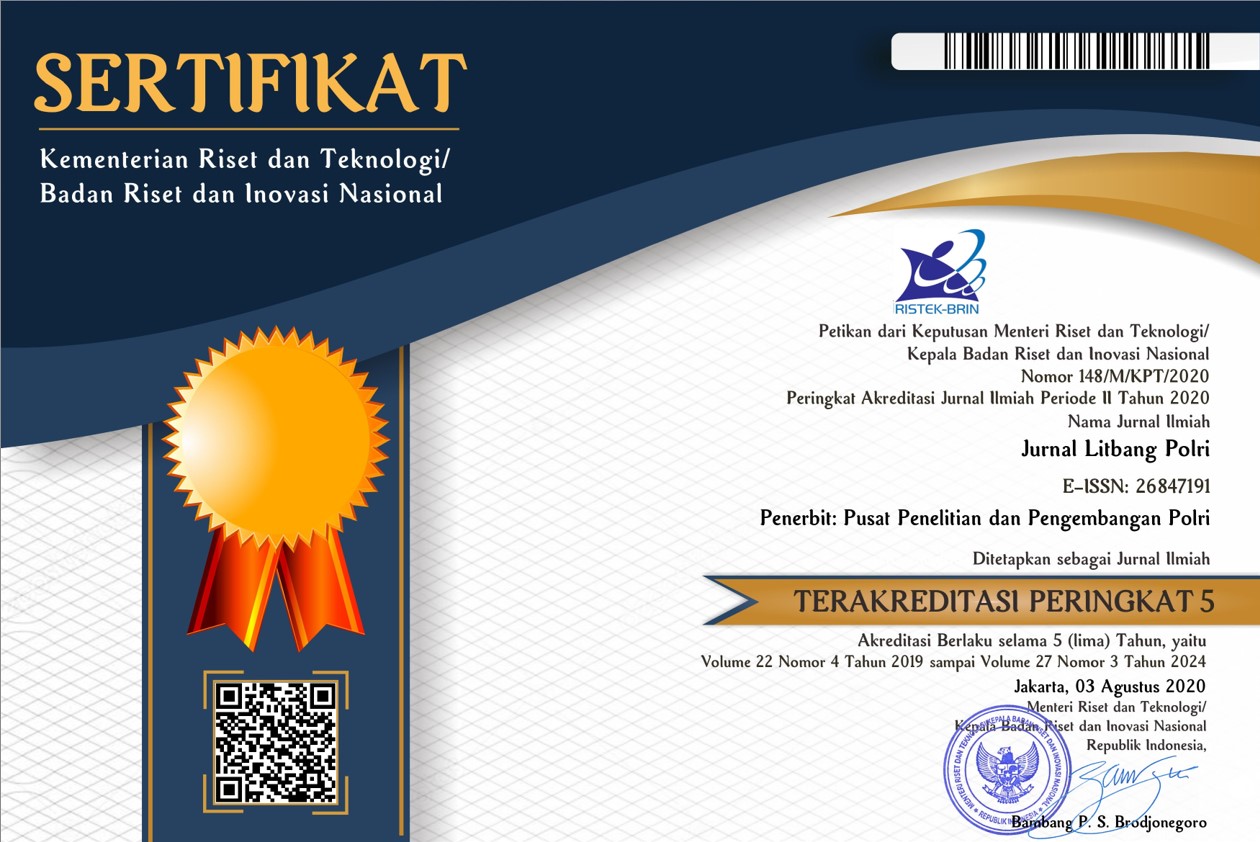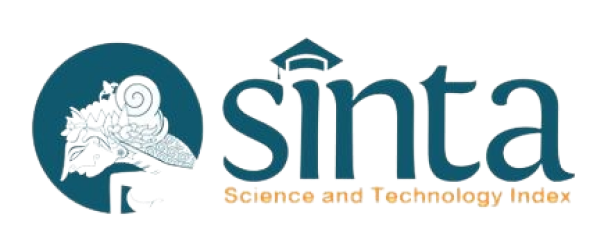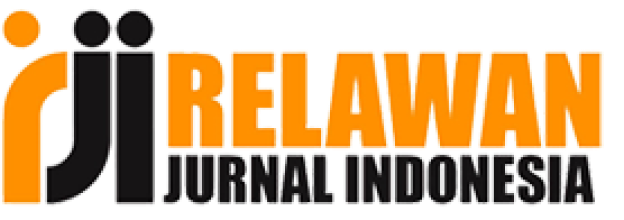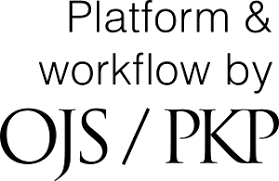stategi, Strategi Pembinaan Perwira Polri Pascapendidikan Pembentukan Guna Mencegah Terjadinya Pelanggaran Dalam Rangka Mewujudkan Polri Yang Profesional
Strategi Pembinaan Perwira Polri Pascapendidikan Pembentukan Guna Mencegah Terjadinya Pelanggaran Dalam Rangka Mewujudkan Polri Yang Profesional
Abstract
Carrying out the HR function of the National Police must be able to act as an agent of change to play a role in forming competent and integrity members of the National Police. This research was carried out in 12 Polda and 105 Polres. Data was collected by distributing questionnaires to all the Heads of the Police Academy, FGDs with the main officials at the Polda and Polres, as well as FGDs with the Heads of the Police Academy. The results of the research show that in general, violations of discipline and the Police Professional Code of Ethics at Pama Akpol in Indonesia are still classified as moderate and low. Based on research findings and analysis, the recommendations for the development strategy for Police Academy leaders are as follows: first, strengthen the role of direct/indirect superiors; Second, it is necessary to consider the role of those carrying out the Propam function and the HR function at the Polres; Third, development of a coaching system in a sustainable and measurable manner; Fourth, revitalizing formal and informal approaches; Fifth, building the character of Pama Akpol through the general duty/preventive police function; Sixth, preventing intervention and policy consistency; Seventh, to maintain the continuity of the foster brother-sister pattern for the Postdiktuk Police Academy Pama; Eighth, routine coaching and close supervision; Ninth, improving supervision and welfare infrastructure; Tenth, special guidance must be prepared for Regional Police in the outermost areas; Eleventh, strengthen strategies for increasing the substance and objects of development.
The copyright of articles published in Jurnal Litbang Polri remains with the author. However, by submitting the manuscript and agreeing to its publication, the author grants Jurnal Litbang Polri the first publication right to:
-
Publish the article openly (open access)
-
Distribute, store, and reproduce the article in both print and electronic formats
-
Archive the article in institutional digital repositories, scientific indexing services, and publication databases
Authors retain the right to use their article for personal, academic, or institutional purposes, provided that the original source of publication in Jurnal Litbang Polri is properly cited.


 Jalan Raya Tonjong, Desa Cimanggis, Bojonggede, Kabupaten Bogor.
Jalan Raya Tonjong, Desa Cimanggis, Bojonggede, Kabupaten Bogor. 










